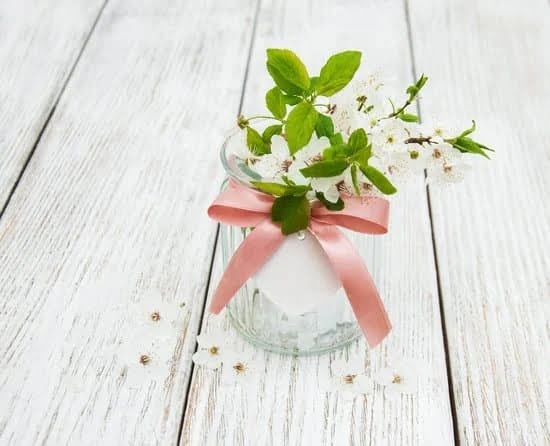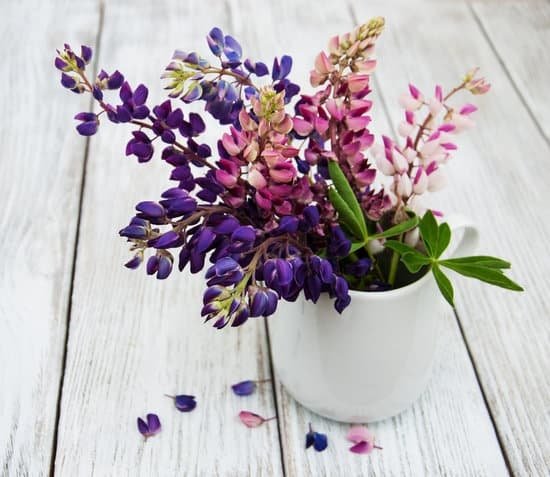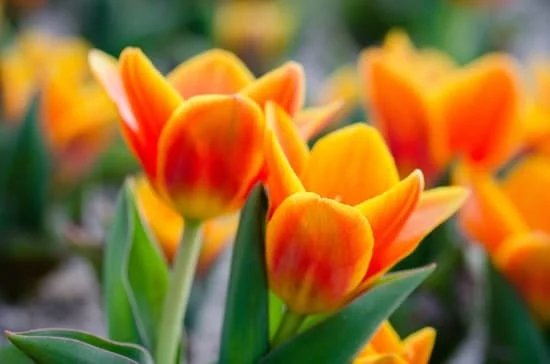Introduction
Container vegetable gardening in the Pacific Northwest is a unique form of cultivating vegetables due to the vegetable’s need for water and nutrients in high quantities when aiming for the most delicious yields. Experienced vegetable gardeners may be surprised at how much different container vegetable gardening can be compared to other forms of gardening they may be familiar with.
For starters, container vegetable gardening allows more flexibility with regard to location because it is not limited by terrain or soil conditions. You could potentially have your container garden indoors, on your balcony, or around your yard just about anywhere that gets 6-8 hours of sunlight per day. In comparison, traditional in-ground gardens rely heavily on access to healthy soil and depend on ideal sun exposure for maximum yield potential. Containers also provide a barrier against certain pests as well as avoid cross-contamination from an existing garden. Additionally, unlike larger-scale gardens, containers only require minimal watering (depending on size) and even less maintenance than normal vegetable gardens; this makes it easier to manage should you decide to go out of town or travel away from home.
Overview of Container Craft
Container vegetable gardening in the Pacific Northwest is an excellent way to produce delicious and affordable homegrown vegetables. The region’s mild climate makes the growing season relatively long, so it’s possible to enjoy fresh, garden-grown produce throughout most of the year!
One of the great things about container gardening is that there are a variety of different types of containers you can use. You can purchase traditional terra cotta or plastic pots from a garden center, or you can get creative by using found objects like old buckets or cans. There is also an abundance of natural material in the Pacific Northwest, such as driftwood, rocks and stones, all of which can be used to make unique, custom-made containers for your plants. Additionally, if you have access to some tools and equipment, you can even build your own planters out of treated lumber or plywood sheets.
Whichever type of container you choose to use for your container gardening project in the Pacific Northwest will depend on what kind of space you have available and how much time you’re willing to invest into creating something truly special. No matter what option you select, however, one thing is certain: with its moderate climate and diverse range of natural materials at hand, the Pacific Northwest is an ideal place to start your very own container garden!
Best Varieties for Container Vegetables
The Pacific Northwest can provide an ideal location for container gardening, thanks to the cool wet climate. When selecting varieties of vegetables suited to this particular region, it is important to take into account the wet conditions and cooler temperatures that are typical in this part of the country. The following are some of the best vegetable varieties that tolerate wet conditions and do well in containers in the Pacific Northwest:
Tomatoes – Beefsteak, Cherry and Heirloom tomato varieties typically have good tolerance for wet soils. Also, consider determinate (bush) tomato plants with shorter growth habits as they tend to tolerate being container-bound better than indeterminate (vining) tomato plants, which require more room to roam.
Onions – Red onion varieties such as ‘Red Bull’ and ‘Stuttgarter’ are hardy, producing round onions similar in taste and texture to regular onions while being less susceptible to disease in damp conditions. Red spring onion varieties such as ‘Red Baron’ or ‘Crimson Forest’ grow best when grown close together, making them great candidates for container gardening due to their space saving qualities.
Potatoes – These hearty vegetables love moisture so growing them does not require a lot of complicated care instructions for containers in most parts of the Pacific Northwest. A few particularly good salads potato varieties include ‘Spinach’, ‘Charlotte’ and ‘Rocket’. They can also be grown from seed potatoes if you have limited space. Be sure not exceed 6 inches of soil above the seed potatoes when planting them in a pot or container garden.
Carrots – Long-rooted carrot varieties like ‘Nelson’ or ‘Flyaway’ typically work best when growing carrots in containers because they don’t need much depth of soil or root-space requirements. To ensure comfortable room for their creeping roots choose a wide pot or use bagged commercial soil designed specifically for container growing rather than garden soil which tends to harden when packed down inside pots over time compacting around your plants roots stunting their growth potentials leading poor yields and/or quality produce at harvest time
Additionally, many herbs like chives, thyme, sage, oregano and parsley thrive extremely well in Pacific Northwest Container Gardens regardless of what pasta meal your preparing! ;P
Container Care Tips
Container vegetable gardening can be a great way to enjoy the beauty of the Pacific Northwest while growing your own fresh produce! There are some important tips for successful container care in this region.
The Pacific Northwest has many rainy days, so drainage is an important issue when caring for containers. Gardeners should ensure there is proper drainage in their containers by either drilling holes on the bottom or sides of the container or adding pea gravel to the bottom. This will allow for water to move through and avoid root rot from standing water.
When watering plants in containers it is important to use with caution, as too much water can cause root rot, nutrient leaching, and fungus. To help manage soil moisture gardeners can use mulch around their plants or provide shade cover over their containers during extremely hot temperatures. Plants also need good air circulation around them to reduce risk of fungus growth, so cluster pots away from each other and don’t overcrowd them – leaving enough space between each vessel allows air to circulate properly. A good practice is to inspect regularly the roots and surrounding soil of container plantings, looking out for any signs of disease and making changes where necessary. It’s also helpful to invest in different sizes of planters – deeper pots are needed for deep-rooting vegetables like carrots and radishes while shallower vessels are perfect for shallow-rooted veggies like lettuce and peppers. Finally, make sure you remain committed throughout the season and keep up with regular maintenance such as weeding, staking tall vegetables as needed, trimming foliage pruning excess leaves for better airflow, etc… All these pieces add together to create happy and healthy plant yield by harvest time!
Pest Control
Container vegetable gardening in the Pacific Northwest can be a wonderful and rewarding experience for novice and experienced gardeners alike. Unfortunately, it is not without its challenges. It’s important to use natural pest control to protect your crops from the insect pests that can take over your garden if left unchecked.
Organic pest control is an excellent way to keep pests away from your crops without harming plants or beneficial insects. When organic pesticides are used strategically, they are effective in controlling many kinds of pests while maintaining your own health and safety in the process. Additionally, organic pest control minimizes environmental impact by reducing chemical pesticide runoff into our streams and water table.
Beneficial insects such as ladybugs, lacewings, hoverflies, and parasitic wasps are essential allies for fighting off harmful garden pests. These friendly insects will help you balance the ecosystem in your container vegetable garden naturally by preying on certain types of pests that would otherwise multiply quickly. For example, ladybugs eat aphids and other small insects; lacewings eat aphids, mealybugs and caterpillars; hoverflies eat any type of soft-bodied insect; and parasitic wasps lay their eggs inside caterpillars or other destructive insect larvae (not adult insects). By introducing these beneficial bugs into your container vegetable garden you can have peace of mind knowing that they’re doing their part to protect your valuable crop yields.
Water and Fertilizer
Container vegetable gardening in the Pacific Northwest presents unique challenges to gardeners due to the region’s cool and often wet climate. To make sure plants get the proper care they need, gardeners should pay special attention when it comes to water and fertilizer. In particular, understanding the difference between organic and synthetic fertilizers is essential for container vegetable gardens in this area.
Organic fertilizers are derived from natural materials, such as manure, compost, or even food waste. These types of fertilizers provide a wide range of nutrients over an extended period of time and also help improve overall soil quality by providing minerals like iron and magnesium. However, organic fertilizers take longer to break down than synthetic fertilizers; therefore, their effects will be subtle and may take several weeks or months before results can be seen.
In contrast, synthetic fertilizers are derived from inorganic sources such as chemicals like nitrate sulphate or urea. These fertilizer compounds have a much higher concentration of nitrogen and other essential elements; however they do not contribute any beneficial minerals to soil structure nor have long-term benefits for soil health. Synthetic fertilizers act quickly to spur plant growth but must be reapplied more frequently than organics due to their potential hazard if over-applied or used in incorrect amounts.
Overall the type of fertilizer selected should depend on what’s most important for a container veggie garden – quick results or sustained improvemeent of soil fertility? For gardens that need more immediately noticeable Growth but can afford frequent applications and monitoring – synthetic options are best suited although long term use could damage vibrant soils limitations with Oregon’s wet climate conditions preventing year round applications .If sustaining hearty soils is priority it’s better serve with organic products which although having slower release action ultimately create stronger healthier plants with robust yields year after year!
Companion Planting
Container vegetable gardening in the Pacific Northwest is an excellent way to optimize the region’s fertile soil and mild climate. The key to successful container gardening in this region is utilizing companion planting. This means that you should carefully select common vegetables, herbs, and flowers in order to plant them together in ways that enhance their growth.
This practice is beneficial as certain crops require specific types of pollination or natural pest control methods. An example of this can be seen when planting peas alongside carrots; this combination encourages better yields for both plants, as the carrots will reach maturity more quickly when planted near the pea’s nitrogen-fixing properties. Herbs and flowers can also be included for added benefits such as keeping away destructive pests or improving flavor profiles of adjacent veggies. Popular choice in this region include lavender, oregano, chives and marigolds, however it’s important to familiarize yourself with each element before you make your selections.
Conclusion
Container vegetable gardening in the Pacific Northwest offers a unique and rewarding experience for those willing to embrace it. By choosing the right containers and plants, as well as providing adequate soil, drainage, water, and light, you can create a productive garden that will provide you with sustenance while also giving you an opportunity to connect with nature and your surroundings. For those interested in growing their own vegetables, container vegetable gardening in this region gives you access to local resources and allows you to spend time outdoors learning or simply enjoying. With so many benefits associated with it, there is no doubt that container vegetable gardening is a great option for anyone looking for an enjoyable pastime in the Pacific Northwest. So why not start experiencing the joys of vegetable gardening today?

Welcome to my gardening blog! I am passionate about plants and enjoy sharing my knowledge and experiences with others. In this blog, I will write about everything related to gardening, from tips on how to get started to updates on my own garden projects.





